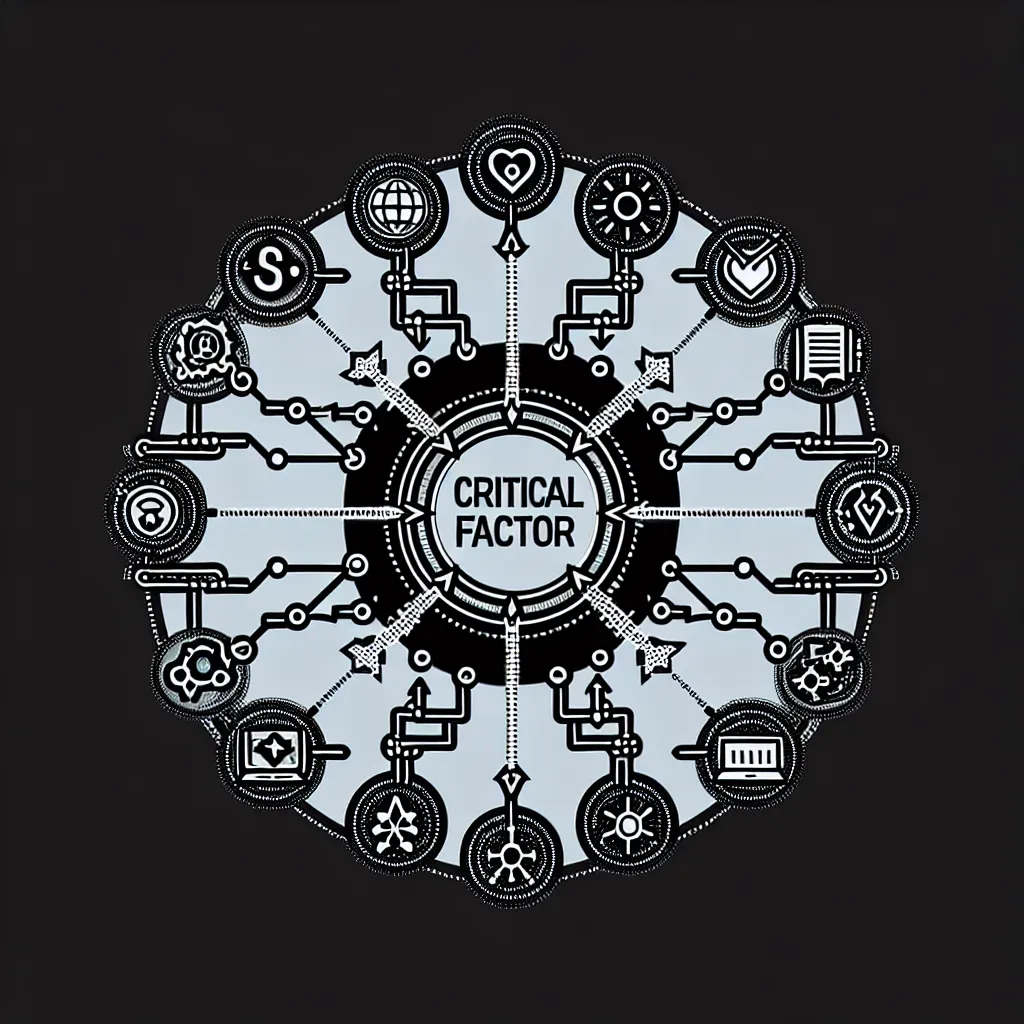The phrase “be critical for + noun/gerund” is a powerful structure that frequently appears in IELTS exams. It expresses the crucial importance of something for a particular purpose or outcome. Understanding and using this phrase correctly can significantly enhance your performance across all sections of the IELTS test.
Meaning and Frequency in IELTS
The structure “be critical for + noun/gerund” means that something is absolutely essential or extremely important for a specific purpose or result. It’s commonly used in academic and professional contexts, making it particularly relevant for the IELTS exam. This phrase appears regularly in Reading passages, Listening transcripts, and can be effectively employed in Speaking and Writing tasks to demonstrate advanced language skills.
Examples in IELTS Context:
- Reading: “Proper nutrition is critical for maintaining good health.”
- Listening: “The speaker emphasized that teamwork is critical for the success of the project.”
- Writing Task 2: “Education is critical for reducing poverty in developing countries.”
- Speaking Part 3: “I believe that effective communication is critical for resolving conflicts in the workplace.”
- Writing Task 1: “The graph shows that innovation is critical for economic growth in the technology sector.”

Grammar Formula and Usage
The basic structure of this phrase is:
[Subject] + be + critical + for + [noun/gerund]
- The subject can be a noun, pronoun, or gerund.
- The verb “be” should agree with the subject and can be used in various tenses.
- “Critical” is an adjective that remains unchanged.
- “For” is the preposition that links “critical” to its purpose or outcome.
- The noun or gerund after “for” represents the purpose or outcome.
Application in IELTS Sections:
-
IELTS Reading: Identify this structure in passages to understand key points and relationships between ideas.
-
IELTS Listening: Listen for this phrase to recognize important concepts and their significance in lectures or conversations.
-
IELTS Writing: Use this structure in Task 2 essays to emphasize the importance of factors in your argument.
-
IELTS Speaking: Incorporate this phrase in Part 2 monologues or Part 3 discussions to express your opinions on crucial elements of a topic.
Sample Passages and Analysis
Writing Task 2 Sample:
In many countries, technological literacy is critical for employability in the modern job market. While some argue that traditional skills are still valuable, I believe that proficiency in digital tools is critical for career success in most industries. For instance, data analysis skills are critical for making informed business decisions, and social media expertise is critical for effective marketing strategies.
Analysis: This paragraph uses the structure four times to emphasize the importance of various technological skills in the job market. Each instance links a specific skill to its crucial outcome, demonstrating a clear understanding of cause-and-effect relationships.
Speaking Part 3 Sample:
Examiner: What factors do you think are important for a successful business?
Candidate: Well, there are several factors that contribute to business success, but I believe effective leadership is critical for guiding a company in the right direction. Additionally, innovation is critical for staying competitive in today’s fast-paced markets. Moreover, customer satisfaction is critical for building a loyal customer base and ensuring long-term profitability.
Analysis: The candidate uses the structure three times to highlight key factors in business success. This demonstrates a good command of advanced vocabulary and the ability to express complex ideas clearly.
Achieving Higher Band Scores
To achieve higher band scores in IELTS, it’s important to use this structure accurately and appropriately:
-
Band 6: Basic use of the structure with simple nouns.
Example: “Money is critical for starting a business.” -
Band 7: Correct use with both nouns and gerunds, showing some flexibility.
Example: “Adequate funding is critical for launching and sustaining a successful startup.” -
Band 8-9: Advanced use with complex ideas and varied vocabulary.
Example: “In the realm of scientific research, securing substantial grants is critical for conducting groundbreaking experiments and publishing influential findings.”
Common Mistakes to Avoid
-
Incorrect preposition: Using “of” instead of “for”.
Incorrect: “Education is critical of success.”
Correct: “Education is critical for success.” -
Misusing the adjective: Confusing “critical” with “critic”.
Incorrect: “He is critic for the project.”
Correct: “He is critical for the project’s success.” -
Wrong word order: Placing “for” before “critical”.
Incorrect: “Time management is for critical success.”
Correct: “Time management is critical for success.” -
Overuse: Using the structure too frequently can make your speech or writing sound repetitive. Vary your language with synonymous expressions like “essential for”, “crucial to”, or “vital in”.
-
Inappropriate context: Using the structure for minor or trivial matters.
Inappropriate: “Choosing the right color is critical for my new phone case.”
Better: “Choosing the right strategy is critical for the company’s expansion into new markets.”
Conclusion
Mastering the use of “be critical for + noun/gerund” can significantly enhance your IELTS performance across all sections. Practice incorporating this structure into your responses, especially in Writing Task 2 essays and Speaking Part 3 discussions. Remember to use it appropriately to emphasize truly important factors or outcomes. As you prepare, look for opportunities to use this structure in practice essays on topics like education, technology, business, and environmental issues, as these are common themes where the concept of critical importance often arises in IELTS exams.
For further practice, consider exploring how this structure can be applied to discuss global challenges, personal development, or scientific advancements. By doing so, you’ll not only improve your grasp of this particular phrase but also enhance your overall ability to express complex ideas in English.